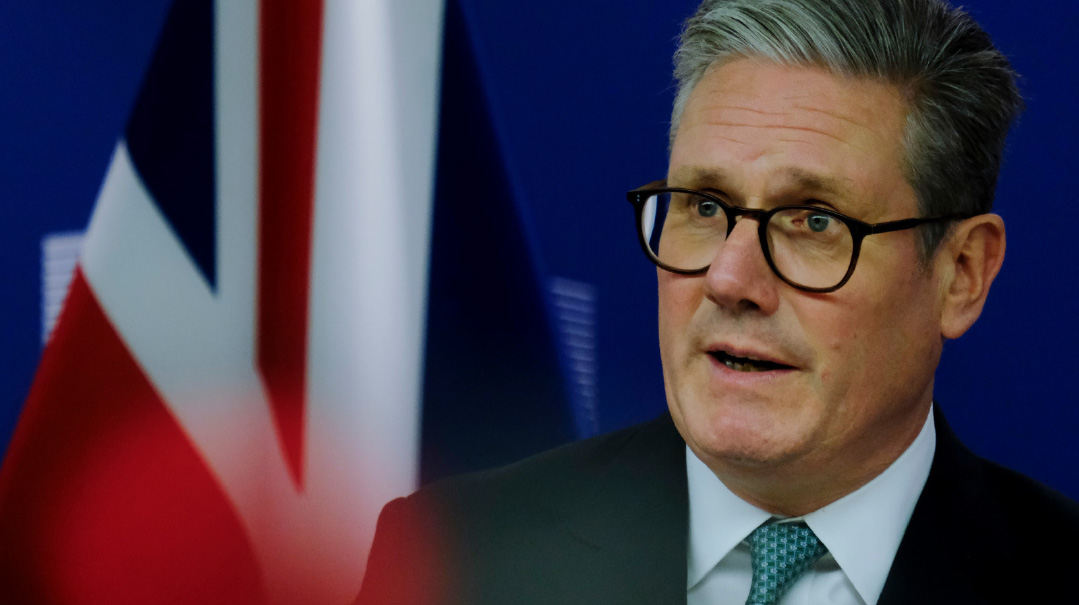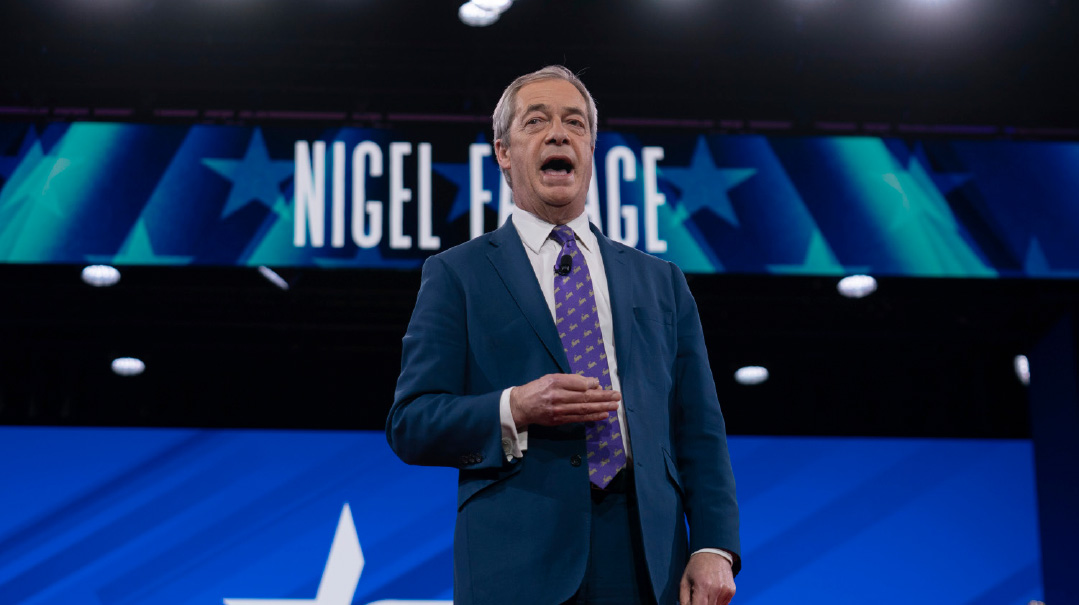Stranger Than Fiction: Ukraine’s New Jewish President


C
all it the ultimate reality TV. Last week, a Jewish Ukrainian actor, who plays a fictional president in a popular television show, defeated the billionaire incumbent to win election as Ukraine’s new president. In the process, the country became the first outside Israel to simultaneously have a Jewish prime minister and president.
Volodymyr Zelenskiy took 73% of the vote in a landslide that ended the rule of chocolate tycoon Petro Poroshenko, who has governed Ukraine since the 2014 Maidan revolution and subsequent Russian seizure of Crimea and parts of eastern Ukraine. The election of the 41-year-old Jewish leader in Ukraine raises the intriguing question of whether the country’s traditionally heavy strain of anti-Semitism is fading.
Zelenskiy’s unlikely rise to power as an outsider also raises questions over whether Ukraine is emerging from the grip of the oligarchs who have run the country in the post-Soviet period, as well as how the new chief of state will deal with the frozen conflict with Russian separatists in the country’s east.
So, who is Volodymyr Zelenskiy, reality star-turned-president? In a campaign short on traditional media and long on social media, one of the only people to have had had access to Zelenskiy on the campaign trail was Vladislav Davidzon, editor of the Odessa Review, an English language cultural magazine. He says that Ukraine’s new leader, who comes from a gritty, industrial part of the country, is charismatic and funny, and possesses a macho, working-class attitude. “He’s strong-willed, but also emotionally effusive; a short, tough Jewish guy.”
Zelenskiy’s campaign, according to Davidzon, was like Trump’s — only more professional. “Zelenskiy ran an anti-campaign. He used short social media posts, comedy routines. In a debate with President Poroshenko two days before the election, he read out Internet trolling questions designed to mock the president.” He didn’t have a developed set of polices, which only reflected the fact that he did not seriously expect to win.
The narrative that emerged from Zelenskiy’s victory inevitably focused on the new president’s Jewish identity and the country’s long history of anti-Semitism. Commentators noted Zelenskiy’s ascendance gives lie to Russian claims that Ukraine’s approximately 250,000 Jews live in a country headed by a fascist regime.
But Eduard Dolinsky of the Ukrainian Jewish Committee, which fights anti-Semitism and Holocaust denial, warns against reading too much into the surprise result.
“The election says nothing about anti-Semitism in the Ukraine,” he told Mishpacha. “If anti-Semitism is on the way out in the Ukraine, why are these commentators saying that if Zelenskiy fails, the Jews will be blamed?”
Rather, Dolinsky says, Ukraine’s traditional Jew-hatred is unaffected by the election: “Anti-Semitism is alive in Ukraine, the same as it always was. Physical violence against Jews is at a very low level, but it expresses itself as traditional religious hatred, as nationalism and building monuments to Nazi collaborators, and as Holocaust denial.”
But according to Vladislav Davidzon, the fact that Ukrainians from across the spectrum voted for Zelenskiy shows they saw him as a projection of a different Ukraine than the one represented by Poroshenko. With a stalemate against Russian separatists in the country’s east, the Poroshenko government turned to Ukrainian nationalism as a way to rally support. A recent law recognized all Ukrainians who fought the Germans in World War II as war veterans, including even anti-Semitic nationalists. Just last week, the outgoing administration passed a controversial language law requiring most government business to be conducted in Ukrainian, despite the long-standing use of Russian and other languages in Ukraine.
“The fact that [Zelenskiy] won over reformers, young, old, rural, city people, pro-Russian and pro-Ukrainian, taking 23 out of 24 regions, shows that he represents a vision of an end to the old political elite,” said Davidzon. “As a Jewish guy from a working-class background representing all different types of Ukrainians, he stands for the victory of Belgian-style amalgamation and federation of Ukraine’s two identities, both Russian and Ukrainian.”
To a large degree, Ukraine’s fate will be decided not by the occupant of the Mariyinsky Palace, home of the Ukrainian president, but by his counterpart in the Kremlin. On the campaign trail, Poroshenko tried to paint Zelenskiy as a Kremlin stooge without providing any evidence to back up his claim. But according to the Atlantic Council, a think tank, Zelenskiy didn’t set on joining the EU as a goal as Poroshenko did; even his campaign wording about joining NATO was vague, leaving open the possibility of joining a rival Russian-led regional bloc.
But in a sign of the challenges that this actor with no political experience will face, President Putin didn’t wait long to test the new Ukrainian leader. Russia announced last week that residents of Donetsk and Luhansk, the breakaway regions in eastern Ukraine, will be eligible for fast-track Russian citizenship. The EU and State Department condemned the decision, as did Zelenskiy himself.
As Donald Trump, another reality star-turned-president can testify, winning elections is one thing, dealing with Vladimir Putin another. But after five years of conflict with Russia, and with an economy still dominated by an oligarchy, the Ukrainian people are hoping that President Zelenskiy will open Act II for the country.
(Originally featured in Mishpacha, Issue 758)
Oops! We could not locate your form.













